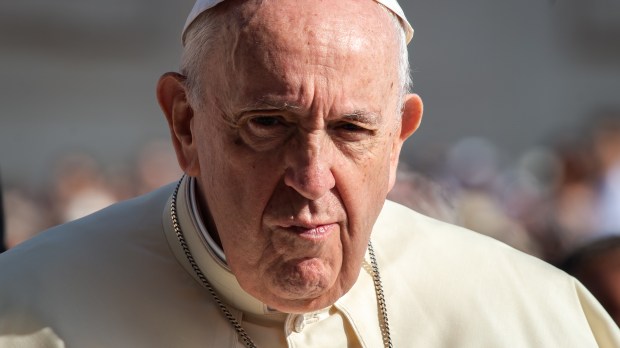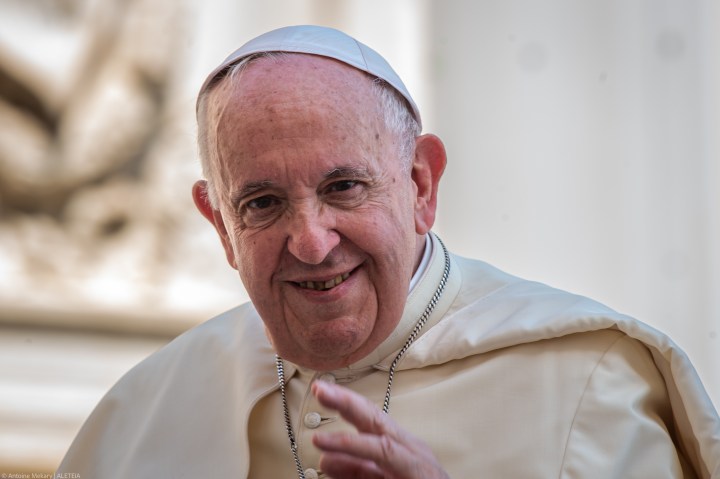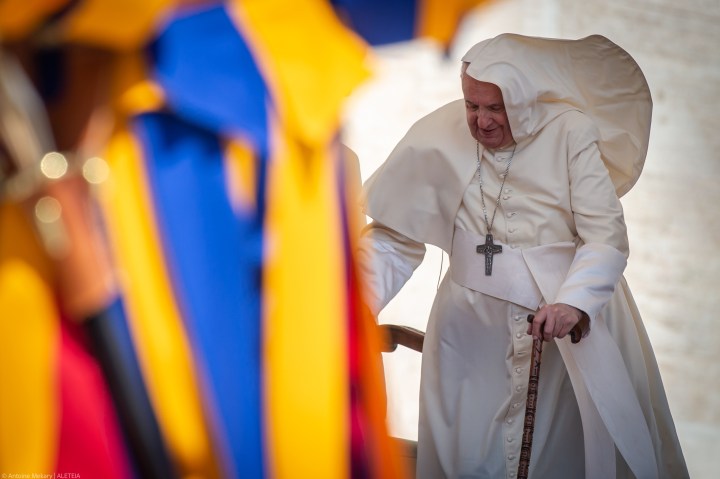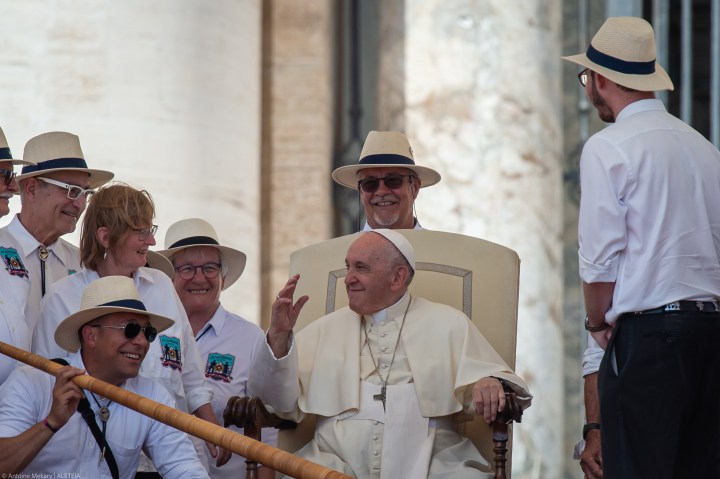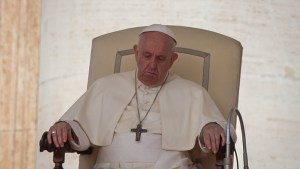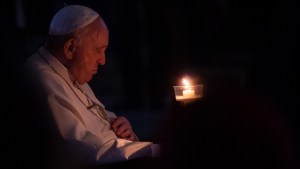“Science advances, of course, and that is good. But the wisdom of life is something else entirely, and it seems to be stalled,” Pope Francis warned in the general audience of May 25, in which he continued to consider old age, this time in the light of the Book of Ecclesiastes. Today, the Holy Father used his tripod cane during the audience, as his knee pain continues to afflict him.
Commenting on the famous phrase of this biblical book – “all is vanity” – he acknowledged that it is surprising to find in the Bible expressions questioning the meaning of existence.
But we can have the same impression: “The path of indifference may also appear to us as the only remedy to a painful disillusionment. Questions like these arise in us: Have our efforts changed the world? … It seems that all this is useless… Why make so much effort?”
This disenchantment is particularly tempting for the elderly, the Pope said. But precisely because of this, when the elderly still have a “passion for justice” their testimony is strong.
If the elderly, who have seen it all by that time, keep intact their passion for justice, then there is hope for love, and also for faith.
Worn out
Our modern world is sorely in need of this hope, the Pope observed, because, he said to the French-speaking pilgrims, “Modern culture has reduced truth to exact science and technology, creating a world without hope and without love.”
A knowledge that seems to exempt us from morality seems at first to be “a source of freedom and energy,” but it soon turns to “paralysis of the soul,” the Pope said.
The emptiness of meaning and lack of strength opened up by this knowledge, which rejects any ethical responsibility and any affection for the real good, is not harmless. It not only takes away the strength for the desire for the good: by counterreaction, it opens the door to the aggressiveness of the forces of evil. These are the forces of reason gone mad, made cynical by an excess of ideology. In fact, with all our progress, with all our prosperity, we have really become a “society of weariness.” Think about it: we are the society of weariness.
Eventually, we even lose our energy for truth, Francis said, considering that “it is no coincidence that ours is the age of fake news, collective superstitions, and pseudo-scientific truths. It’s curious: in this culture of knowledge, of knowing everything, even of the precision of knowledge, a lot of witchcraft has spread, but cultured witchcraft. It is witchcraft with a certain culture but that leads you to a life of superstition: on the one hand, to go forward with intelligence in knowing things down to the roots; on the other hand, the soul that needs something else and takes the path of superstitions, and ends up in witchcraft.”
In such a cultural context, the Pope said, with the wisdom of Ecclesiastes, “old age can learn the art of bringing to light the deception hidden in the delirium of a truth of the mind devoid of affection for justice.”
Elderly people rich in wisdom and humour do so much good for the young! They save them from the temptation of a knowledge of the world that is dreary and devoid of the wisdom of life. And these elderly people also bring the young back to Jesus’ promise: ““Blessed are those who hunger and thirst for righteousness, for they shall be satisfied” (Mt 5:6). They will be the ones to sow the hunger and thirst for justice in the young. Take courage, all of us older people! Take courage and go forward! We have a very great mission in the world. But, please, we must not seek refuge in this somewhat non-concrete, unreal, rootless idealism – let us speak clearly – in the witchcraft of life.
